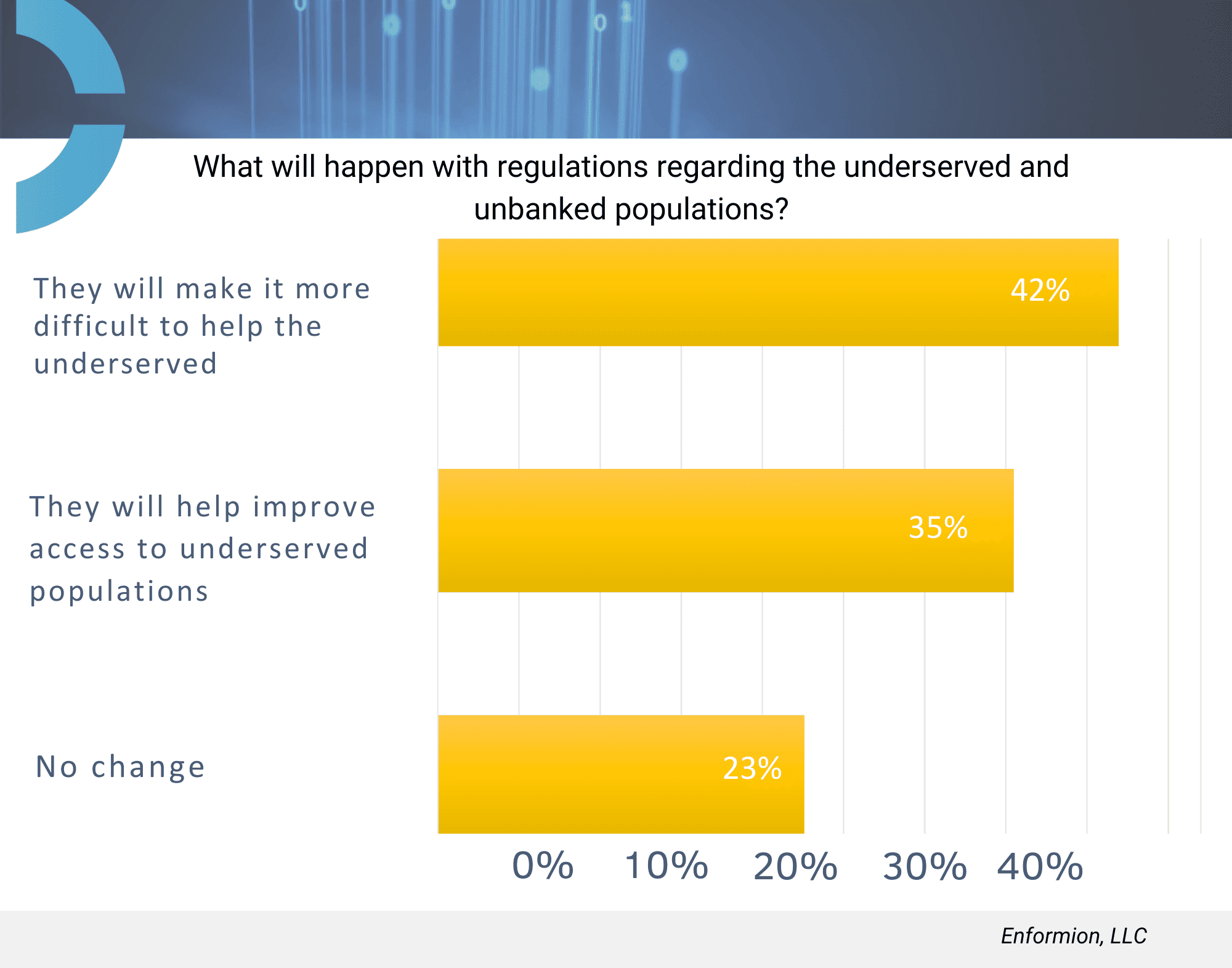Navigating Modern Age Verification Challenges
Modern businesses operating in data-sensitive industries face the challenge of verifying the age of their customers effectively. From online retailers selling age-restricted products to social media platforms ensuring user safety, age verification is a crucial aspect of maintaining compliance with regulations and providing a secure user experience. In this blog post, we will examine the challenges associated with age verification, revisiting a recent study where Enformion asked participants to share their thoughts and perspectives on what will be important to focus on for the future of age verification solutions and regulation compliance. However, let’s first delve into the challenges surrounding age verification and regulation compliance.
Online Age Verification Challenges
Verifying the age of customers poses unique challenges for businesses, particularly those operating in the online environment. Unlike brick-and-mortar establishments where age verification might be conducted in person, online platforms lack the advantage of face-to-face interactions. This absence makes it inherently difficult to confirm the age of users with absolute certainty. In the digital realm, individuals can remain largely anonymous, complicating the verification process.
One significant challenge arises from the potential for users to provide false information during the registration process. This introduces a layer of uncertainty, as businesses cannot rely solely on the information provided by users. This not only undermines the accuracy of age verification but also exposes businesses to the risk of legal consequences. False information can lead to unauthorized access to age-restricted content, and in cases where minors gain access, companies may find themselves entangled in legal disputes.
While it is crucial to adhere to age restrictions to comply with regulations, businesses must navigate this process without compromising the overall user experience. An invasive or cumbersome verification process may drive potential customers away, ultimately impacting user acquisition and satisfaction. This is something impacted organizations are worried about, highlighting the sensitive nature of the challenges surrounding age verification compliance. Striking the right balance is a delicate challenge that requires careful consideration of both legal requirements and user expectations.
Why is Age Verification Data Important?
Age verification data holds paramount importance for businesses dealing with age-restricted products or services. Beyond being a legal requirement, this data plays a crucial role in fostering a safe and secure online environment for users. By accurately verifying the age of customers, businesses can tailor their services to ensure the delivery of age-appropriate content. This not only aligns with regulatory mandates but also safeguards users, particularly minors, from exposure to inappropriate material.
Understanding the age demographics of the customer base is instrumental for companies. It allows them to refine their marketing strategies, tailoring promotions and content to specific age groups. This targeted approach enhances customer engagement by providing relevant and appealing content, ultimately leading to increased satisfaction. Age verification data, therefore, serves as a foundation for personalization, enabling businesses to build stronger connections with their audience.
Regulations and Compliance
Several industries are bound by regulations that necessitate strict age verification processes. This extends to a diverse range of sectors, including online gaming and gambling platforms, alcohol and tobacco sales, adult content providers, and pharmaceutical companies. Compliance with age-restricted product regulations is not merely a legal necessity; it is a strategic imperative for companies aiming to operate effectively and responsibly.
The implementation of robust age verification measures is crucial for building trust with the user base. Users are more likely to engage with businesses that prioritize customer safety and adhere to regulatory standards. Non-compliance not only jeopardizes this trust but also exposes companies to potential legal ramifications, including fines and legal actions. Operating within the framework of age restrictions is not just a regulatory hurdle; it is a fundamental aspect of responsible business practices, ensuring the well-being of users and the long-term sustainability of the business.
Impacted Industries
Age verification, and the legislation surrounding its regulation compliance, plays a critical role in shaping the operational landscape for age-restricted products and services. Industries that work with gaming and gambling, adult content, social media, and the distribution of alcohol, tobacco, firearms, and cannabis all emphasize a strong focus on preventing underage access and promoting responsible business practices.
Across these industries, age verification legislation serves as both a legal necessity and a strategic imperative. Compliance with age restrictions is essential for building trust with users and regulators, and non-compliance can lead to legal consequences, fines, and damage to reputation. The specific tools and methods used for age verification, such as identity verification platforms and document authentication services, may vary, but the overarching goal is to ensure that products and services are accessed only by individuals of the appropriate age.
Enformion’s Insights on Age Verification Challenges
Enformion recently conducted a poll where participants shared insights into their concerns and priorities regarding age verification. Common themes included the need for seamless integration of age verification tools, concerns about data security, and a desire for solutions that strike the right balance between compliance and user experience. This feedback serves as a valuable reflection of the challenges and considerations that businesses currently face in the realm of age verification and compliance.
Today’s Age Verification Tools
In the ever-evolving landscape of age verification, businesses are leveraging various tools to enhance their verification processes. Some popular age verification tools used today include identity verification platforms, document authentication services, and biometric recognition technologies.

Identity verification platforms often utilize government-issued IDs or passports to verify a user’s age, while document authentication services assess the legitimacy of provided documents. This proved to be the most utilized option among those asked, yielding the highest level of trust and legitimacy when verifying a user’s age (and identity).
Compliance Focus
Different industries grapple with distinct age-related regulations, each designed to address specific concerns related to the nature of their products or services. For instance, online gaming and gambling platforms often need to comply with age restrictions to prevent minors from participating.

Above all other regulations to comply with, existing state legislation appears to be the top focus for businesses operating with user age verification today. Staying ahead of these regulations is crucial for businesses, as failure to comply can result in legal consequences and damage to their reputation.
Parental Consent Effectiveness
Parental consent is a commonly used method for age verification, specifically when dealing with minors. While it can be effective in certain situations, its reliability is contingent on the diligence of parents and guardians. Today children have unparalleled access to unsupervised internet usage, and relying solely on parental consent may not be foolproof. Additionally, obtaining verifiable consent can be challenging, and fraudulent consent may also be provided.

When asked about the effectiveness of parental consent, participants overwhelmingly agreed that it needs some work. This belief seems to be shared, as businesses today are exploring more technologically advanced age verification solutions to supplement or replace traditional parental consent methods.
Top Age Verification Concerns
Increased regulation targeting underserved communities can pose challenges for companies aiming to serve these populations. Specifically, how will the future of regulations impact businesses’ abilities to verify the ages of users in these communities effectively? Participants voiced concerns regarding the evolving landscape of regulations and the hurdles it would present in adapting to stay compliant while serving underbanked communities.

While age verification regulations could potentially make it more challenging for businesses to assist underserved populations, they also cultivate a more thorough system of checks and balances for right-party contact. As these regulations become more intricate, the gap between verified and unverified individuals in underserved communities could grow wider.
Optimizing Customer Age Data
As businesses continue to navigate these challenges, it becomes increasingly evident that a holistic approach, combining technological solutions with a nuanced understanding of regulatory landscapes, is essential. Enformion’s commitment to providing comprehensive age data optimization services aligns with the evolving needs of businesses, offering a robust solution for age verification while addressing the concerns and challenges prevalent in today’s digital age.
By leveraging advanced data filtering techniques, businesses can ensure compliance with age regulations and access valuable customer data for legitimate purposes. Enformion’s tools enable businesses to verify customer age accurately, minimizing the risk of unauthorized access to age-restricted content. This not only enhances regulatory compliance but also streamlines the customer onboarding process, improving overall operational efficiency.
Learn more about the services Enformion offers to optimize your age verification solutions:
Final Thoughts
Age regulation compliance is paramount for businesses dealing with age-restricted products or services. Neglecting age verification processes can lead to legal consequences, loss of trust, and compromised user safety. Trusted age verification services provide solutions to optimize customer age data and ensuring businesses can meet regulatory requirements while accessing valuable customer insights. As we navigate the complexities of the modern age verification complaint, prioritizing accurate age verification is not just a legal obligation but a strategic move to enhance customer experience and maximize the value of customer data. Don’t overlook the significance of age regulation compliance – it’s the key to unlocking a secure, compliant, and customer-centric future.
